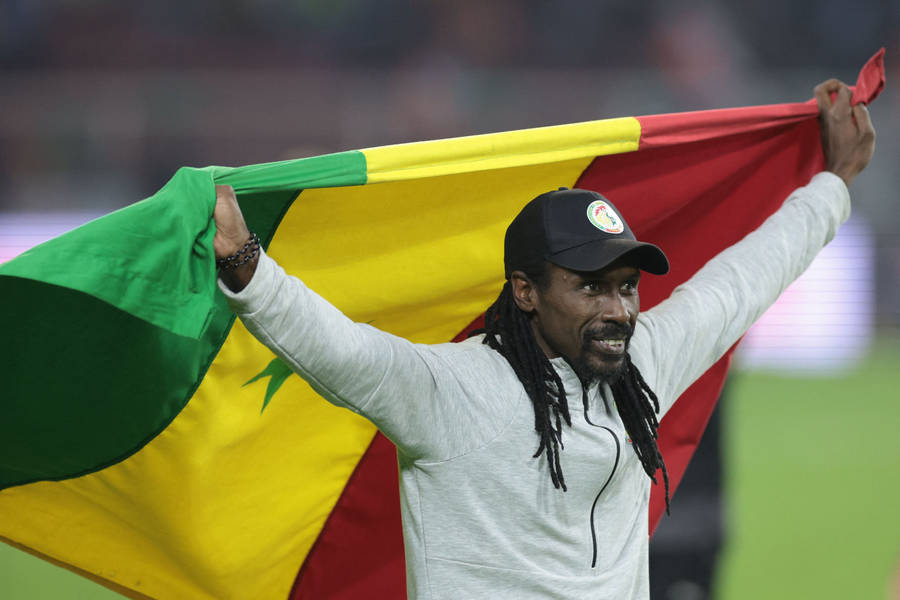“Football Coaching Strategies in Senegal
Related Articles Football Coaching Strategies in Senegal
Football Coaching Strategies in Senegal

Senegal, a West African nation renowned for its vibrant culture and passionate footballing spirit, has steadily emerged as a force to be reckoned with on the global football stage. The nation’s success in producing world-class players like Sadio Mané, Kalidou Koulibaly, and Edouard Mendy is a testament to the effectiveness of its football development system. At the heart of this system lies a combination of traditional coaching methods and modern strategies that have shaped the nation’s footballing identity. This article explores the coaching strategies employed in Senegal, examining the historical context, key influences, and innovative approaches that have contributed to the country’s footballing success.
Historical Context and Evolution of Coaching in Senegal
Football in Senegal has a rich history, dating back to the colonial era when the sport was introduced by European traders and administrators. Initially, football was primarily played in urban areas, with local teams emerging and competing in informal leagues. As the sport gained popularity, formal football structures began to develop, with the establishment of the Senegalese Football Federation (FSF) in 1960.
In the early years, coaching in Senegal was largely based on traditional methods, often relying on the experience and intuition of former players. However, as the sport evolved globally, Senegalese coaches recognized the need to adapt and incorporate modern coaching techniques. This led to the introduction of coaching education programs and the adoption of tactical strategies from European football.
Key Influences on Coaching Strategies
Several key influences have shaped the coaching strategies employed in Senegal:
-
European Football: European football has had a significant impact on Senegalese coaching, with many Senegalese coaches seeking training and education in Europe. This exposure has led to the adoption of tactical systems, training methodologies, and player development approaches from European clubs and academies.
-
African Football Traditions: While embracing modern techniques, Senegalese coaches also draw upon the rich traditions of African football. This includes an emphasis on physicality, athleticism, and improvisation, which are often seen as strengths of African players.
-
Local Culture and Values: Senegalese culture and values also play a role in shaping coaching strategies. Coaches often emphasize teamwork, respect, and discipline, instilling these values in their players.

Coaching Strategies in Senegal
Senegalese coaches employ a variety of coaching strategies to develop players and achieve success on the field. These strategies can be broadly categorized as follows:
-
Player Development: Player development is a central focus of coaching in Senegal, with an emphasis on nurturing young talent and providing opportunities for players to progress through the ranks. Coaches work to identify and develop players with the potential to play at the highest level, providing them with the technical, tactical, and physical skills needed to succeed.
- Youth Academies: Youth academies play a crucial role in player development in Senegal. These academies provide young players with structured training and education, helping them to develop their skills and reach their full potential.
- Talent Identification: Coaches and scouts actively seek out talented players from across the country, often visiting local communities and schools to identify promising youngsters.
- Individualized Training: Coaches recognize that each player is unique and requires individualized training to develop their specific skills and address their weaknesses.
-
Tactical Approaches: Senegalese coaches employ a range of tactical approaches, depending on the strengths of their team and the opposition they are facing. Common tactical strategies include:
- Attacking Football: Senegalese teams are often known for their attacking flair and creativity. Coaches encourage their players to express themselves on the field and take risks in the final third.
- Defensive Solidity: While emphasizing attacking football, Senegalese coaches also recognize the importance of defensive solidity. They work to organize their teams defensively and ensure that they are difficult to break down.
- Counter-Attacking: Senegalese teams are often adept at counter-attacking, using their pace and athleticism to quickly transition from defense to attack.
-
Training Methodologies: Senegalese coaches utilize a variety of training methodologies to develop their players’ skills and fitness. These methodologies include:
- Technical Drills: Technical drills are used to improve players’ ball control, passing, shooting, and dribbling skills.
- Tactical Exercises: Tactical exercises are designed to improve players’ understanding of the game and their ability to make decisions on the field.
- Physical Conditioning: Physical conditioning is an important aspect of training in Senegal, with coaches focusing on developing players’ strength, speed, agility, and endurance.
-
Psychological Preparation: Senegalese coaches recognize the importance of psychological preparation in football. They work to build players’ confidence, motivation, and mental toughness, helping them to perform at their best under pressure.
- Team Building: Team-building activities are used to foster a sense of camaraderie and unity within the team.
- Positive Reinforcement: Coaches use positive reinforcement to encourage players and build their confidence.
- Mental Skills Training: Some coaches incorporate mental skills training into their programs, teaching players techniques for managing stress, focusing their attention, and visualizing success.
Challenges and Opportunities
Despite the progress made in football coaching in Senegal, several challenges remain:
-
Limited Resources: Many Senegalese clubs and academies lack the resources needed to provide high-quality training and facilities. This can hinder player development and limit the potential of talented youngsters.
-
Infrastructure Deficiencies: Senegal’s football infrastructure is still developing, with a shortage of quality pitches and training facilities. This can make it difficult for coaches to implement their training programs effectively.
-
Brain Drain: Many of Senegal’s most talented players are scouted by European clubs and move abroad at a young age. This can deprive the local league of its best players and make it difficult for Senegalese clubs to compete at the highest level.
However, there are also significant opportunities for further development:
-
Government Support: Increased government investment in football infrastructure and coaching education programs could help to address some of the challenges facing the sport in Senegal.
-
Private Investment: Private investment in youth academies and football clubs could provide much-needed resources and expertise.
-
Collaboration with European Clubs: Partnerships with European clubs could provide opportunities for Senegalese coaches to gain experience and learn from some of the best in the world.
Innovative Approaches
Senegalese coaches are increasingly adopting innovative approaches to player development and tactical strategies. Some examples include:
-
Data Analysis: Some coaches are beginning to use data analysis to gain insights into player performance and identify areas for improvement.
-
Technology Integration: Technology is being used to enhance training sessions, track player progress, and improve communication between coaches and players.
-
Community Engagement: Coaches are working to engage with local communities and promote football as a tool for social development.
Conclusion
Football coaching in Senegal has evolved significantly over the years, with a blend of traditional methods and modern strategies shaping the nation’s footballing identity. While challenges remain, the passion for football and the commitment to player development provide a solid foundation for continued success. By embracing innovative approaches and investing in infrastructure and coaching education, Senegal can further enhance its footballing reputation and continue to produce world-class players who inspire the nation.
The future of Senegalese football looks bright, with a new generation of talented players and dedicated coaches emerging. With continued investment and innovation, Senegal can solidify its position as a leading footballing nation in Africa and beyond.

